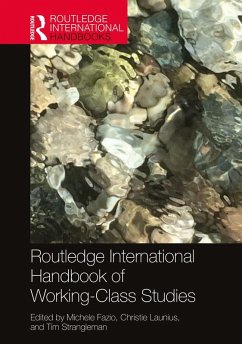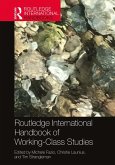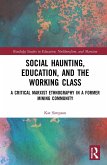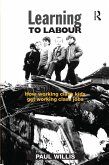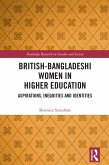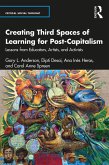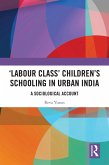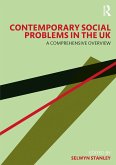The Routledge International Handbook of Working-Class Studies is a timely volume that provides an overview of this interdisciplinary field that emerged in the 1990s in the context of deindustrialization, the rise of the service economy, and economic and cultural globalization.
Dieser Download kann aus rechtlichen Gründen nur mit Rechnungsadresse in A, B, BG, CY, CZ, D, DK, EW, E, FIN, F, GR, HR, H, IRL, I, LT, L, LR, M, NL, PL, P, R, S, SLO, SK ausgeliefert werden.
"This book is far-reaching in its purview. Ranging from a welcome account of working-class studies over the past 25 years to in-depth treatments of working people's lives, communities, cultures, struggles, oppressions and activism in different places and at different times, it highlights the inherently multi-disciplinary nature of this field of research. Collectively and individually, the contributions focus attention on continuities and changes, intersections and conflicts at work and at play, through words, deeds and representations. At this time of global crisis, the book provides a firm foundation for reflection and for intellectual and political engagement with the lives of those on the labour front lines in the past, present and future."
- Lucy Taksa, Professor and Director, Centre for Workforce Futures, Macquarie Business School
"The relatively young field of Working-Class Studies announces its growing maturity and importance in this wide-ranging collection. Offering contributions from leaders in the field and from fresh new voices, this handbook crosses borders of race, gender, and nation in showing how class and work matter in popular culture, workplaces, schools, prisons, literature, and beyond. Attentive to methodologies and lived experiences it will ground a new generation of scholarship."
- David Roediger, Foundation Professor of American Studies, University of Kansas
- Lucy Taksa, Professor and Director, Centre for Workforce Futures, Macquarie Business School
"The relatively young field of Working-Class Studies announces its growing maturity and importance in this wide-ranging collection. Offering contributions from leaders in the field and from fresh new voices, this handbook crosses borders of race, gender, and nation in showing how class and work matter in popular culture, workplaces, schools, prisons, literature, and beyond. Attentive to methodologies and lived experiences it will ground a new generation of scholarship."
- David Roediger, Foundation Professor of American Studies, University of Kansas

